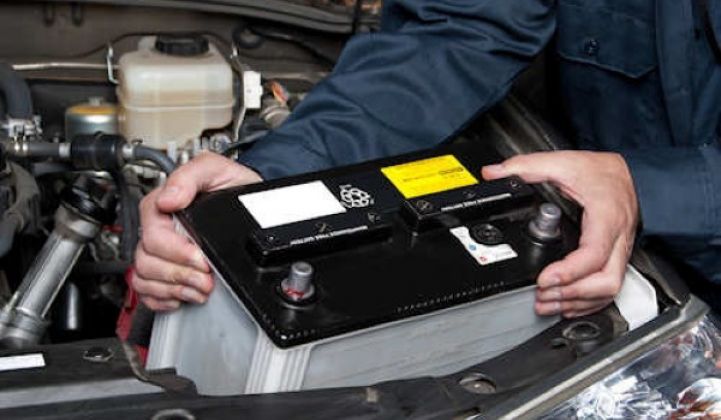Nobody wanted Coda’s plug-in electric sedans. Will anyone want its grid batteries?
Fortress Investment Group (FIG) seems to think so. The New York-based investment firm announced this week that it’s going ahead with a plan to turn the bankrupt EV startup’s batteries and energy management technology into a standalone grid storage business called Coda Energy.
The new business, created with the close of bankruptcy proceedings last week, consists of the “core technology, engineering and energy storage assets of CODA Holdings, Inc., as well as its key contracts and partnerships,” which include deployments in a San Diego apartment complex, as well as in two InterContinental hotels in San Francisco with energy management startup Stem, according to Monday’s announcement.
That actually puts the new company's lithium-ion-battery-based energy storage business a bit ahead of its failed EV business. The Los Angeles-based startup with manufacturing in China raised $344 million from investors including former U.S. Treasury Secretary Henry Paulson, but sold fewer than 100 of its electric-powered sedans before filing for bankruptcy protection in May. Fortress bought its share of the company's assets for $25 million in a "Section 363" sale that closed last week.
Coda had been laying the groundwork for its energy storage business since 2011, but hadn't revealed many details about its particular approach to the grid-storage integration puzzle, or how much it was charging for its products and services. The newly reorganized company will be led by Ed Solar, a former smart grid communications executive with Cellnet and Arcadian Networks who joined Coda in 2011, and Peter Nortman, founder of EnergyCS, the energy storage software startup bought by Coda in 2011.
Matt Sloustcher, Coda Energy's director of government relations and communications, said the new company has about 5 megawatt-hours of battery systems under contract with multiple customers, with a focus on the commercial and industrial sector. The company is working with strategic partners on network management, inverters and other power electronics and technology involved with grid interconnection, but everything within the battery, from software to integrated storage projects, is in the new company's purview, he said. (The company now uses lithium-ion battery cells from long-time Chinese partner Lishen, but it plans to be supplier-agnostic on that front, Sloustcher added.)
"One thing we're excited about in terms of our new ownership is that they're not just an owner and investor in the company -- they can also be a strategic partner," he added.
Coda is making a lot of the same promises we’re hearing from grid energy storage technology developers from across the spectrum, including the idea of modular, plug-and-play storage to suit a variety of grid needs:
CODA’s energy storage system (ESS) combines advanced batteries into modular towers or building blocks -- The CODA Core™ -- with proven battery and thermal management systems (BMS and TMS), all managed through a sophisticated power source controller. The systems are optimized for generation, distribution and behind-the-meter applications for commercial & industrial end users, and can be adapted for utility, community and residential applications.
It’s a tough time to be in the electric vehicle business -- see Fisker and Better Place for two case studies, or note the bankruptcy of two Coda affiliates Lio Energy Systems and Miles Electric Vehicles earlier this month. But at least we’ve seen one startup, Tesla Motors, make it out of the gate with its IPO and real-world sales.
The grid storage space is an even tougher business to crack, and one being targeted by a host of direct competitors such as BYD, Mitsubishi, Panasonic, Samsung, LG Chem, Johnson Controls, Saft and others with much deeper pockets, as well as a host of startups and smart grid vendors with grid energy management software and hardware. And let’s not forget bankrupt, repurposed battery maker A123, which also recently announced that it’s soldiering on with its already-substantial grid storage business under its new owner, China’s Wanxiang Group.



